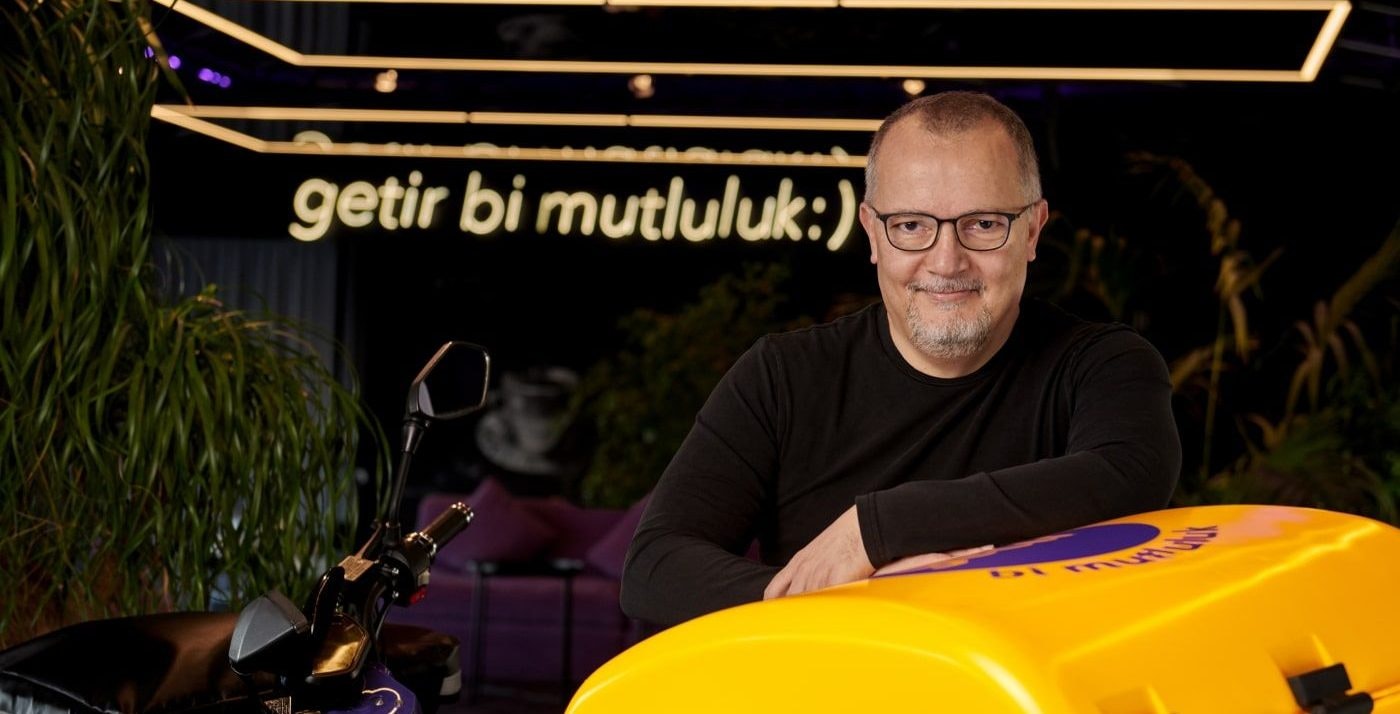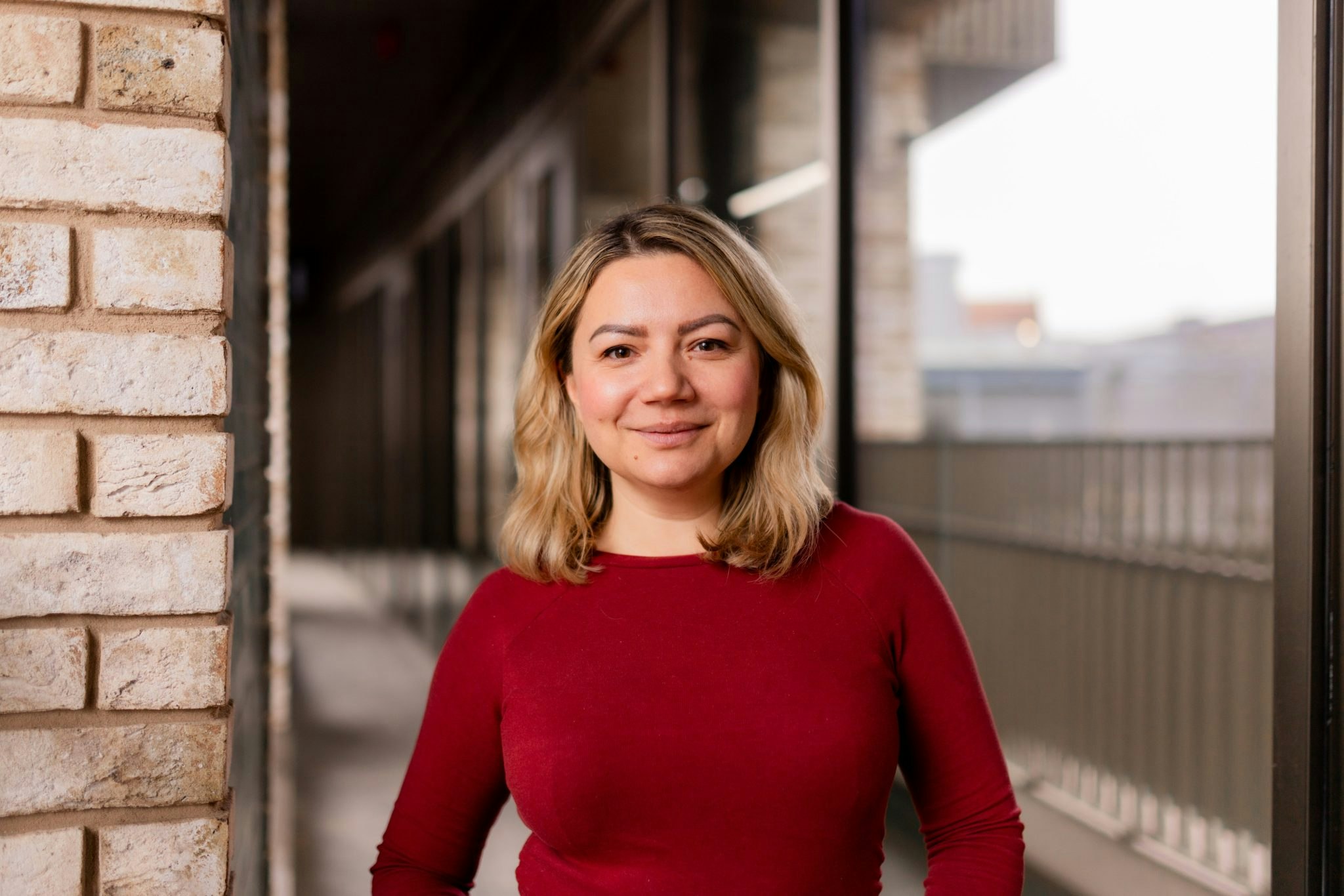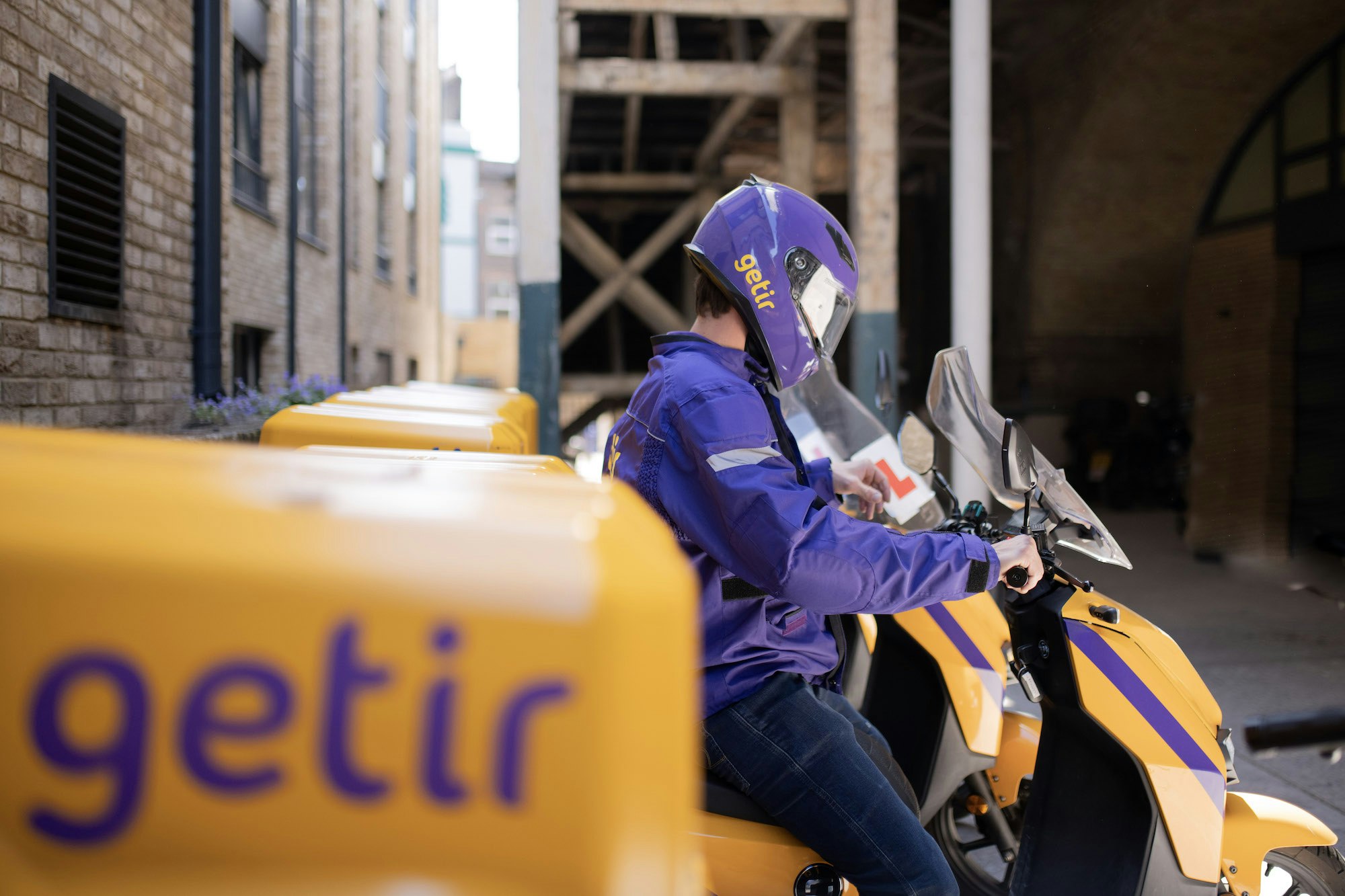From complex global supply chains to awkward plastic packaging, companies making makeup and other beauty products face an uphill struggle to minimise their environmental harm.
And the pressure is on, with consumers demanding it as well as trade bodies like the British Beauty Council piling on the pressure — this year launching a Sustainable Beauty Coalition to help reform the sector.
But challenger direct-to-consumer beauty companies such as Beauty Pie, Q+A and Wild, which have all launched in the past decade, have been centring sustainability since setting up their brands.
What can they teach the industry? What can they tell aspiring beauty entrepreneurs? Sifted asked three founders to share their experiences and hard-won lessons on making this industry more sustainable.
1. Take it as a given — startups have got to do better than multinationals
Multinationals and conglomerates have dominated the beauty and cosmetics industries for decades.
Burdened with legacy supply chains, bureaucratic customer service processes and a focus on retail, “it takes them years rather than months to do the R&D," says Freddy Ward, cofounder of Wild deodorant.
It may sound obvious, but startups are in the best position to ensure the foundation of their business can scale with sustainability at heart. Founders can respond to the climate crisis by looking at what big players are doing badly, and asking themselves how they can provide an alternative or disrupt the industry.
We asked ourselves: 'how can we behave in a way that a big company could never?'
Ward, former head of marketing at HelloFresh, and Charlie Bowes-Lyon, founder of reusable coffee cup company Climate Cups, set out to do just that.
The duo, Ward says, "felt there was going to be a big opportunity to reinvent sustainability in the bathroom."
"[You've got] plastic shower gel, shampoo, deodorant and very limited packaging innovation because it’s dominated by a couple of really big players. Then we asked ourselves: 'how can we behave in a way that a big company could never?' We started with a minimum viable product that was imperfect in many ways, but we learned a lot from doing that — it gave us the confidence to go and do something more disruptive.”
Deodorant's their first port of call — “it’s a very loyalty driven product once you build trust” — and with the help of extensive customer feedback, it’s now on its third version in just two years, equipped with seven scents of natural, refillable deodorant in biodegradable packaging and six personalisable, reusable metal cases.
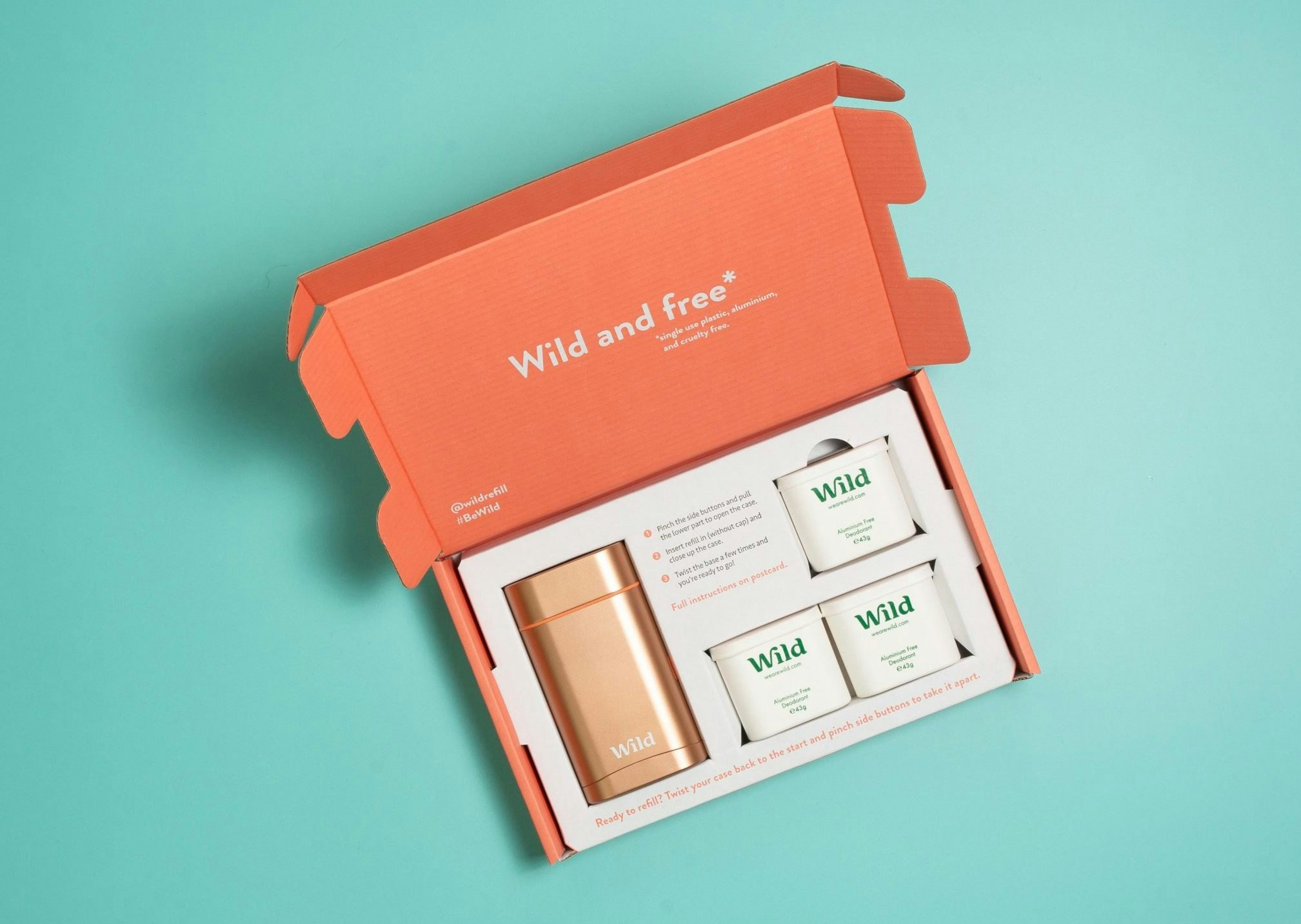
In its early days, the company released both a roll on and a stick deodorant, but their customers said 70% preferred the latter, so they dropped the glass roll ons oft-ubiquitous on supermarket shelves.
“A lot of people familiar with deodorants [said:] 'That will never work, Europeans don’t buy stick deodorant.' Some of these big corporations influence so much with their advertising that they start to believe their own marketing," missing out on opportunities for sustainable innovation.
2. Become obsessed with your supply chain — and choose 'slow' production
For Freddy Furber, founder and chief executive of Ellipsis Brands — an umbrella company that includes cult skincare brand Q+A — taking ownership of the entire process is at the heart of sustainability: “If you own your supply chain, you know when you’re doing something good and something bad. But if you don’t know your supply chain, everything’s under the carpet.”
“I have a fanatical obsession with what I do, and it would annoy me if I didn’t," he told Sifted.
From day one, he says, he knew he wanted to take control of the manufacturing of products. The entire Q+A skincare line is produced at the Ellipsis factory in Norfolk, UK — which runs on solar energy and biogenerators, using compressed air technology for its machines.
Though clearly UK-based in that respect, for Furber, there's a balance between using homegrown ingredients, and ingredients that come from far corners of the globe but are 'natural' alternatives to synthetic, petrochemical-based or unsustainable ingredients — a focus for the company, which claims to be 98% natural.
For instance, retinol or retinoids are a common ingredient in serums and even cosmetic sunscreens to reduce skin damage and acne. Though effective, it's a highly synthesised form of vitamin A that's irritating to the skin and not advised for use during pregnancy.
As the business has gotten bigger, we’ve actually become more sustainable.
Dr Craft, a new brand that's 50% owned by Ellipsis, has replaced the ingredient with bakuchiol — a plant-based antioxidant (in this case, derived from organic babchi seeds using non-petrochemical and organic forms of glycerin) that dermatologists have found is just as effective as retinol. The company also uses what it calls "green chemistry": low-energy extraction methods, and for some of its extracts, converting waste materials from these processes back into active ingredients.
And when it comes to logistics, the company switched from air freight to using a carbon neutral freight forwarder: “As the business has got bigger, we’ve actually become more sustainable.”
Of course, supply chains are highly complex, with components that can be challenging to measure — especially under different definitions of 'sustainability'. One way startups can evaluate this is according to both the conditions and needs of their business, but also their sustainability priorities — which may change as they learn more.
Ultimately though, packaging in the beauty industry is one of its greatest hurdles to sustainability. Companies have to invest time in interrogating what is actually sustainable: by avoiding plastic, are you creating a product that will need to be replaced in a few months’ time?
Decide what matters to your company, but more importantly what matters to the environment.
For instance, Marcia Kilgore, founder of Beauty Pie, is running with a strong anti-landfill message. Founded in 2016, Beauty Pie operates via a buyer’s club — customers pay between £5 to £20 a month for access to reduced-price products because they come direct from laboratories. And like Wild, the company is sticking to a core line of products, avoiding experimental makeup colours and trends that are likely to lead to greater waste.
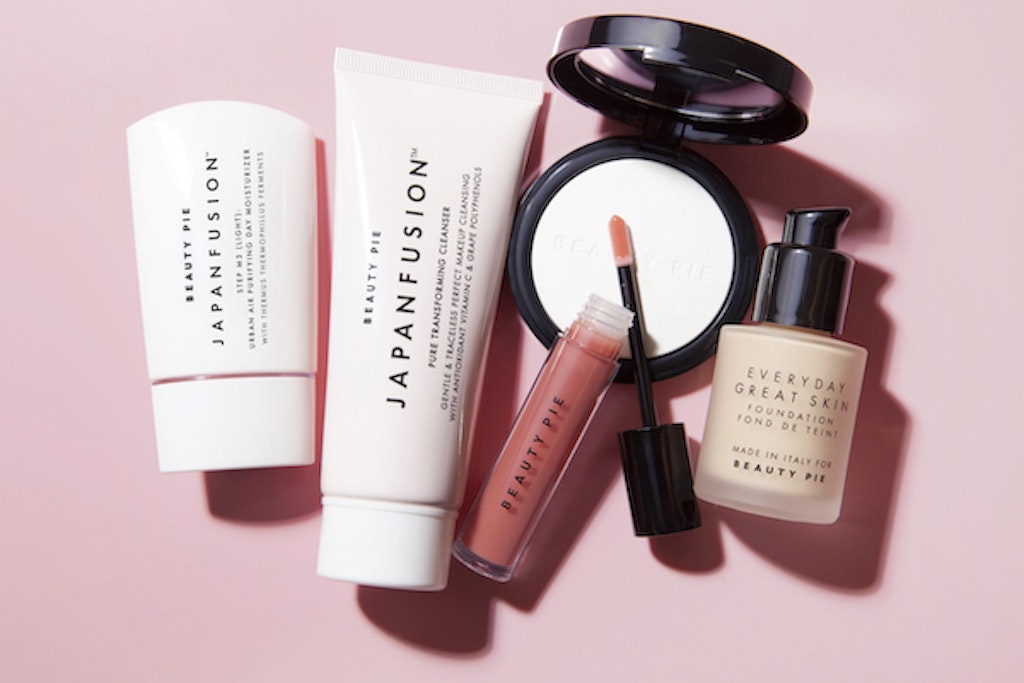
"We’re really anti-landfill, and things go bad after a couple of years. Even if it's inexpensive, I do not want to be selling landfill — so whatever it is, it has to be something that I would buy myself.”
After explaining to Sifted all of the components of a standard compact, including the glue-in mirror, the aluminium pan and rotatable pins — all of which would need to be popped apart to be recycled — she claims that Beauty Pie is the first company to request from their "very large packaging supplier" to switch from virgin plastic to 100% post-consumer resin (PCR), avoiding the need to produce more plastic which relies on fossil fuels.
But ultimately, she says, it's important to balance materials that are better for the environment with packaging that keeps the product safe — an important factor in whether someone will use it until it's run out — the company's priority.
For Wild — a D2C deodorant company that centres sustainability — the choice of bamboo packaging for their refillable deodorants was a critical first step.
“We chose the bamboo before we knew whether we could fill the deodorant. If it was a big organisation they would have probably given up on the project before they brought it to market — we were a bit relentless, I think our manufacturing team really hated us by the end of that.”
Difficult innovation is good because it’s hard for people to instantly copy or replicate — it takes time.
There's a plus to that investment, though. “Difficult innovation is good because it’s hard for people to instantly copy or replicate — it takes time.” In pursuit of further sustainable innovation, Wild tells Sifted they're looking into "one product launch a year, and putting a lot of time and energy and effort into the innovation and the technology to genuinely push forward sustainability."
From pill drops for toothpaste to at-home processes, like mixing water with a concentrated solution of shampoo, Wild is interested in the future of shipping liquids to customers at present.
3. Honesty's the best policy
Another item on Ward's agenda is to produce public annual sustainability reports, and over the next few months the company will be deciding its targets — currently it just reports to its board. So far the company has reduced its packaging by 30%, launched a programme with Terracycle to recycle its reusable cases and has, like Ellipsis Brands, moved its freight from air to sea.
"We’re really open with customers, we’re very feedback driven and very clear we’re not perfect — I think so far that’s served us well," he adds.
I want us to be the most sustainable cosmetics factory in the UK.
Over at Ellipsis, Furber has seriously high ambitions, telling Sifted: “I want us to be the most sustainable cosmetics factory in the UK.”
That being said, you might be surprised to find out he's taking brand honesty in an unusual direction, telling Sifted he’s not huge on marketing Q+A as a ‘sustainable brand’ — just yet.
“It’s a highly complex message...using it to promote your products I don’t think is good, personally. I wouldn’t slap it on the front of Q+A products unless I was confident in the message.”
4. Maintain a constructive dialogue with your customer base
For all D2Cs, but especially for influencer-dominated industries like fashion and beauty, maintaining that honest, but also clear, constructive and even coeducational relationship with customers, is critical to success — even enabling companies to tap into underexplored markets.
"I always felt that skincare was a category which was selling dreams rather than real things," Furber tells Sifted. "Whereas I felt that there was a huge gap in education.” Q+A's distinctive packaging includes a checklist of ingredients, which Furber feels engages and helps educate customers on what skincare really entails.
But this dialogue is also fundamental to ensuring high standards for sustainability.
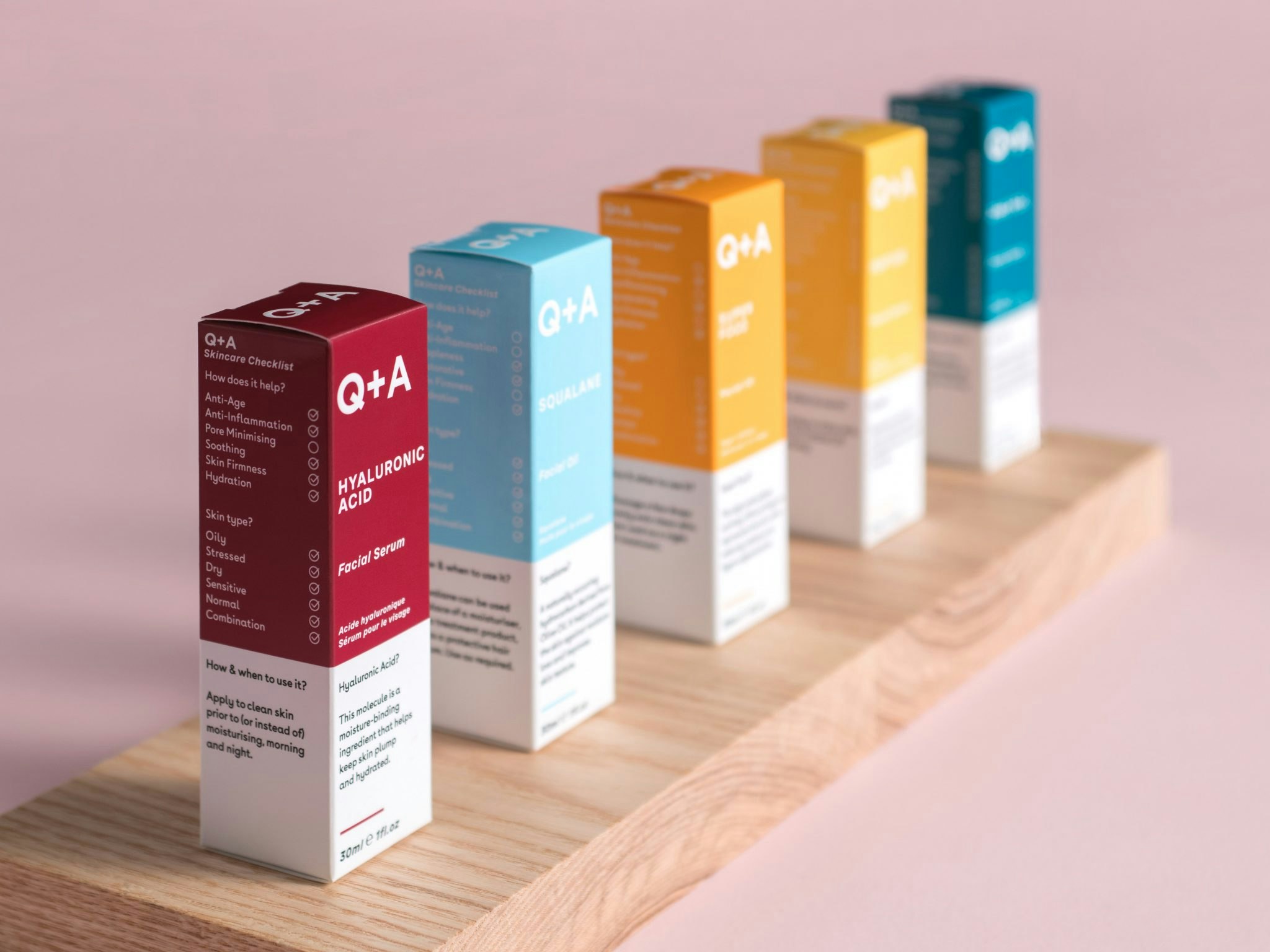
Beauty Pie's direct-from-the-labs model cuts out the middleman of retail, allowing for a more responsive cycle of supply and demand. For Kilgore, communication with customers over email, Facebook groups and Instagram Stories is critical to this process.
The company uses polls on Instagram to decide how much of each product to order, as well as in product development, reducing overall product waste. For Kilgore, it's clear this system works — especially when they forget to use it. "There have been so many issues with Covid-19 and containers that sometimes we forget to poll a product — then we just put our finger in the air and we’ve run out.”
“We've got a bigger customer service department than probably any other department in our world," she adds. "It's so important that people have a human being to talk to, especially with skincare and makeup where they want a little bit of advice."
Everyone’s railing against plastic — it’s hip right now.
But while some customers will come to Kilgore to ask for reduced packaging, others will complain that their pump broke in the process of shipping. When it comes to evaluating complex supply chains, the customer's not always right — so in that case, she says, don't be afraid to go against the grain of what's popular.
“Plastic — as long as it’s not in the ocean or thrown away in the wrong way, discarded without care — is such a great, lightweight material that is easily and locally recyclable, and way cheaper than shipping glass. But everyone’s railing against plastic — it’s hip right now.”
It's one thing to challenge pre-existing narratives around sustainability; it's another to take steps to actually change the system that requires them. And for Kilgore, companies still have an obligation to find solutions.
"I think the next big step for us is to lobby the government to have more local recycling. You know, you also have people say, ‘Well, why can't we ship our empties back to the report?’ Can you imagine shipping around empty containers? That's not good for the earth, either.”
5. Look beyond sustainability — it's about being progressive and accessible
Right, so sustainability is clearly more than just clear-cut green credentials.
Yes, says Kilgore. For Beauty Pie, it doesn't make sense to do something if it's not also as convenient for the customer as possible — which is why they're taking the lobbying approach over inhouse recycling, something that's challenging without having a pre-existing network of stores.
For all three companies, affordability is a critical component too — there's no point in a sustainable product if the majority of people have to choose a cheaper but less sustainable option. Q+A products range from £6.50 to £12 per product; Wild refills cost £6 each; and Beauty Pie claims to cut the cost of its products by around 10x because of its direct-from-supplier model.
Ultimately, says Ward, who's currently in the process of applying for B Corp status, "it’s got to be wider than just sustainability. I think Wild wants to be a progressive business.”
“If you’re going to build a [social] brand like ours, you need to live up to your values.”

